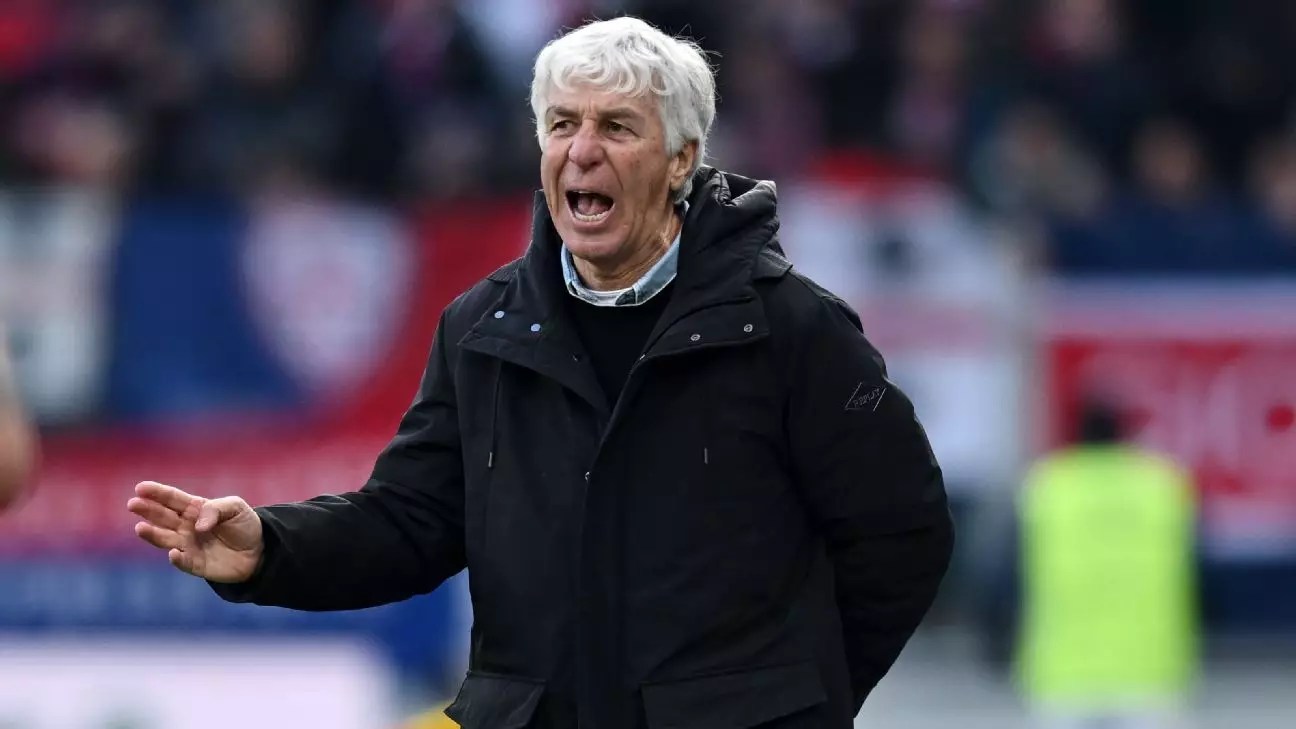In the competitive realm of European football, emotions often run high, and recent comments from Atalanta’s manager Gian Piero Gasperini have sparked significant debate. After a disappointing Champions League exit against Club Brugge, where Atalanta was defeated 3-1, Gasperini remarked that Ademola Lookman was “one of the worst penalty takers” he’d witnessed. This statement, made in the heat of the moment, generated backlash, particularly from Lookman himself, who found the manager’s words disrespectful and injurious. This incident raises questions not only about player management and communication but also about the individual dynamics within a team during stressful periods.
Lookman’s reaction was swift, voicing his dissatisfaction on Instagram, where he labeled Gasperini’s comments as “deeply disrespectful.” This public display of discord highlights the delicate balance of authority and respect in a coach-player relationship. While Gasperini attempted to clarify his intentions during a subsequent press conference, this incident has inadvertently brought attention to broader issues within Atalanta’s squad dynamics. Should Lookman, who has been pivotal for the club, be held responsible for penalty decisions in high-stakes moments, especially in the presence of more traditionally designated takers? His emotional response reveals the pressure players face and the potency of words from their superiors.
Gasperini, for his part, attempted to downplay the conflict, suggesting that Lookman’s demeanor could have benefited from a moment of leadership on the pitch. According to him, stronger communication could have prevented the lapse in judgment regarding the penalty. He referenced a similar scenario during a match between Udinese and Lecce, implying that other players also face miscommunications regarding set pieces. This perspective suggests that Gasperini views his remarks as constructive criticism aimed at fostering team solidarity rather than a personal affront. However, the effectiveness of such strategies rests on the existing rapport between the coach and his players—a rapport that may be strained in this scenario.
As Atalanta prepares to face Empoli in a vital Serie A clash, the fallout from this incident could linger. Currently positioned third in the league, Atalanta must transition past this internal conflict to secure their standing against a relegation-threatened opponent. Even while acknowledging Empoli’s recent struggles, Gasperini’s recognition of their quality underscores a truth: complacency could lead to further pitfalls. The team’s mental resilience will be tested as they navigate the aftermath of this public spat.
This incident serves as a benchmark for larger themes in professional sports: the impact of words, the importance of team cohesion, and the necessity for individual players to have confidence in their roles, especially in high-pressure situations. Whether this controversy will motivate Atalanta to greater heights or sow divisions within the squad remains to be seen, but the onus is undoubtedly on both Gasperini and Lookman to transform this moment into a catalyst for unity and performance.


Leave a Reply